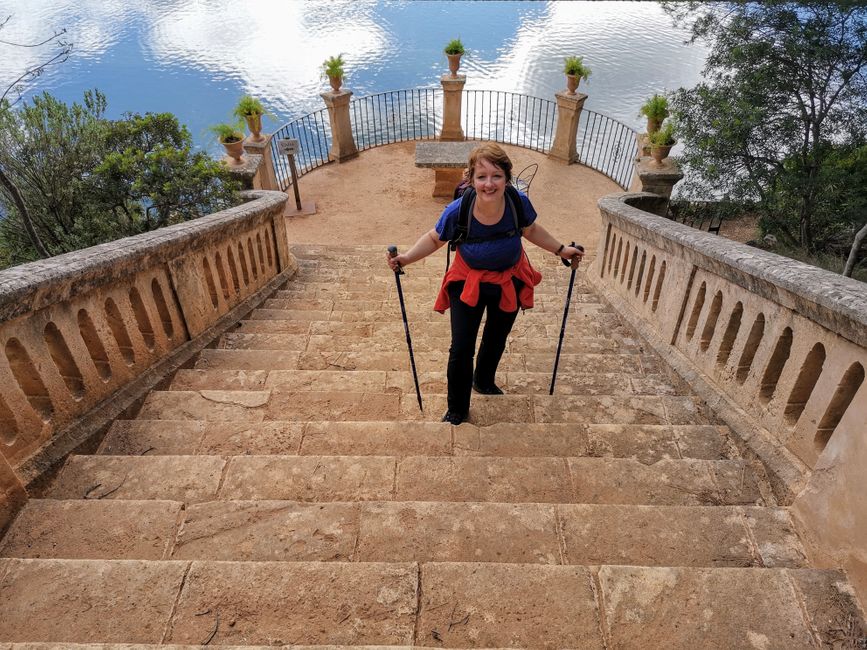Day 9, April 28, 2021: 3rd day at the office in Kasese
ޝާއިޢުކޮށްފައިވެއެވެ: 29.04.2021
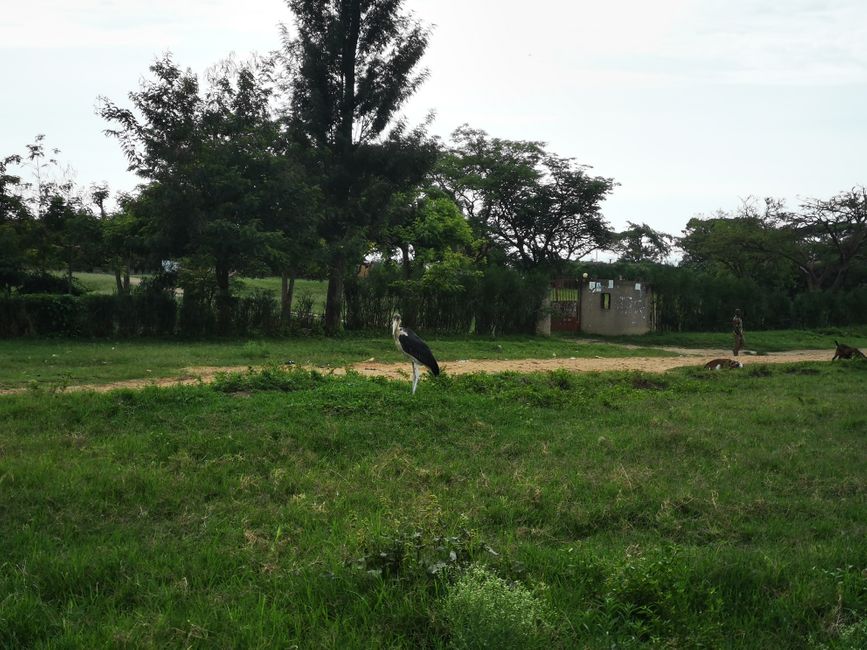
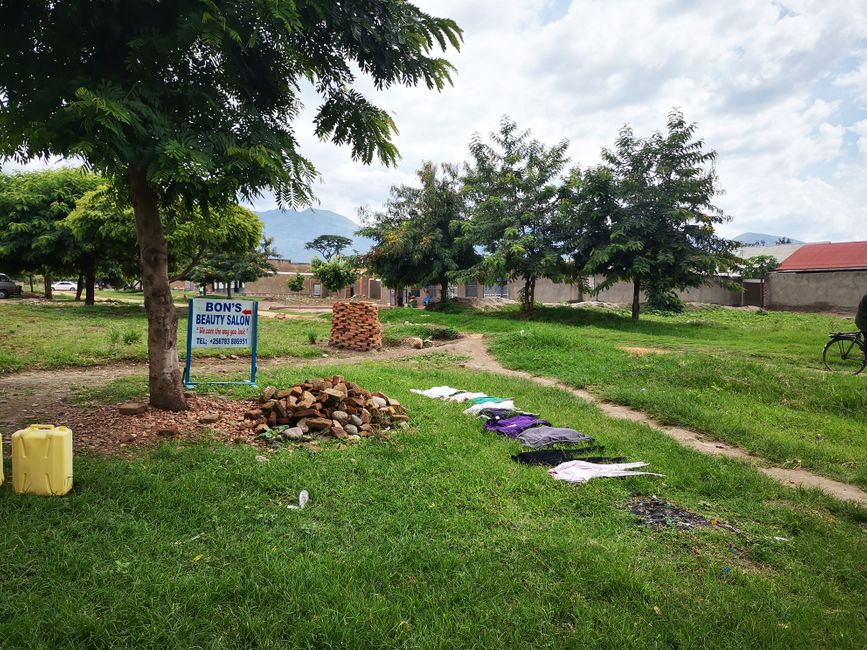
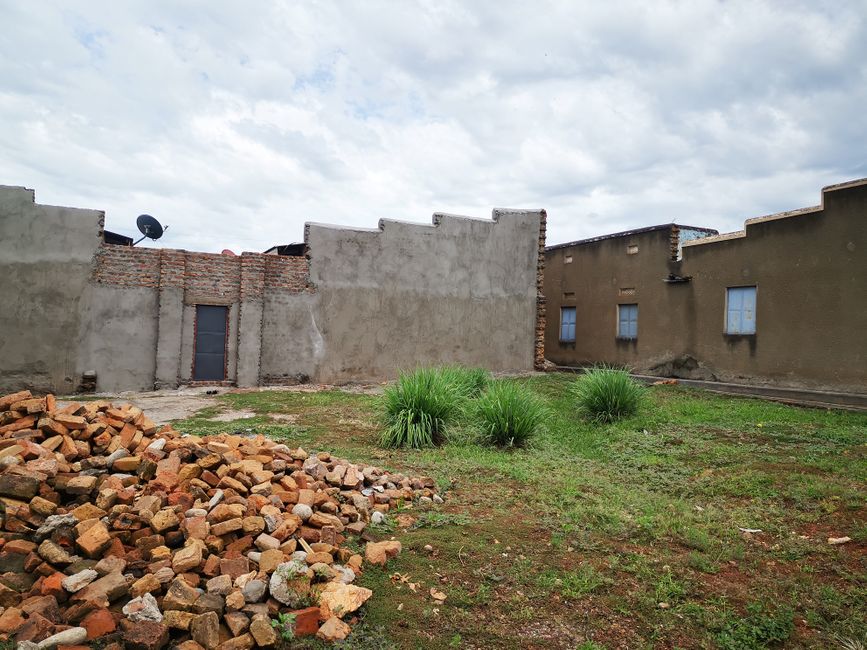
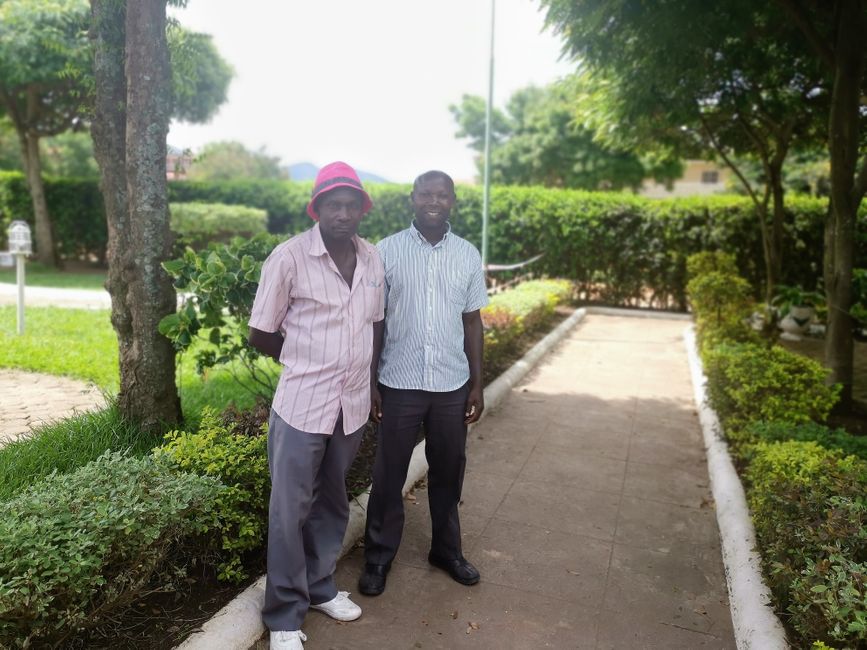
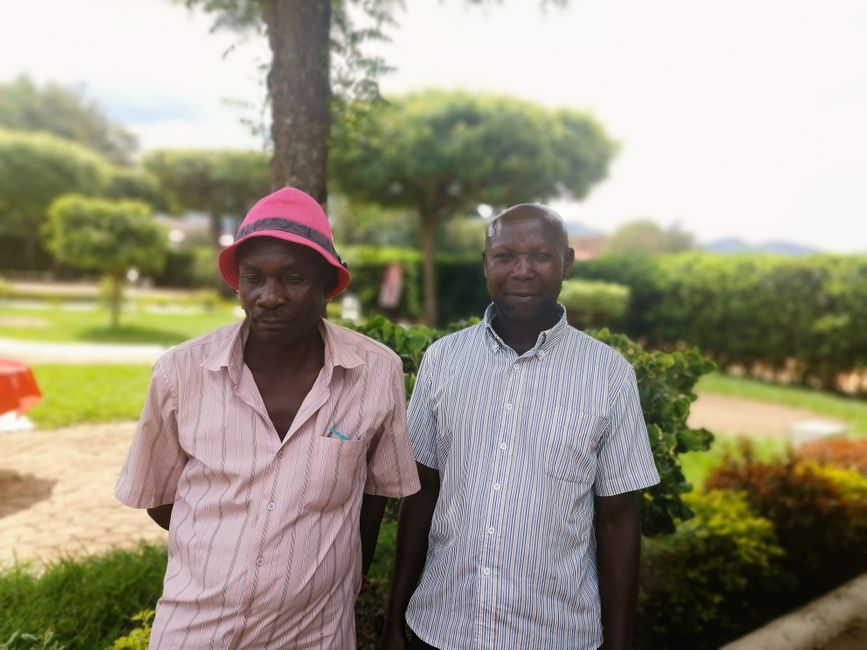
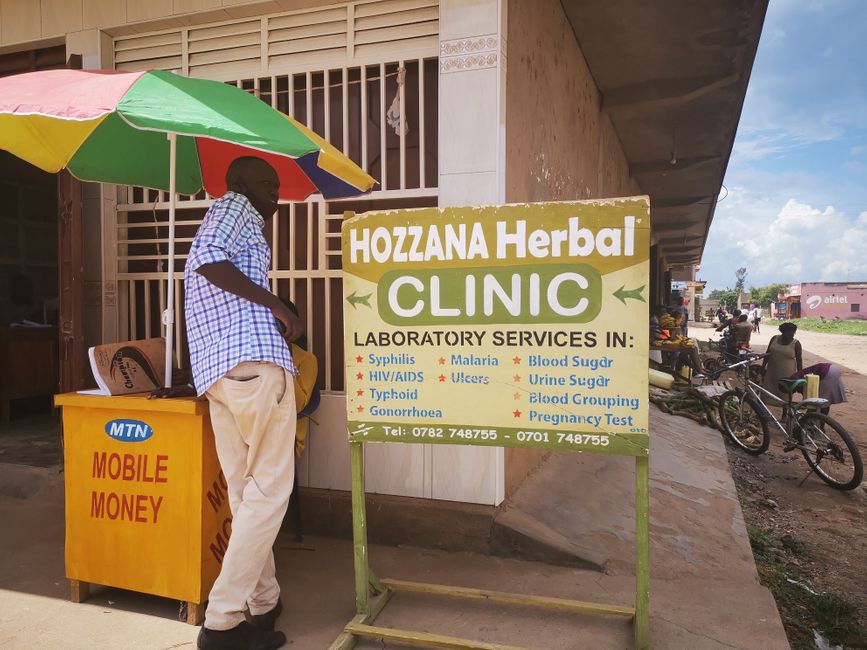
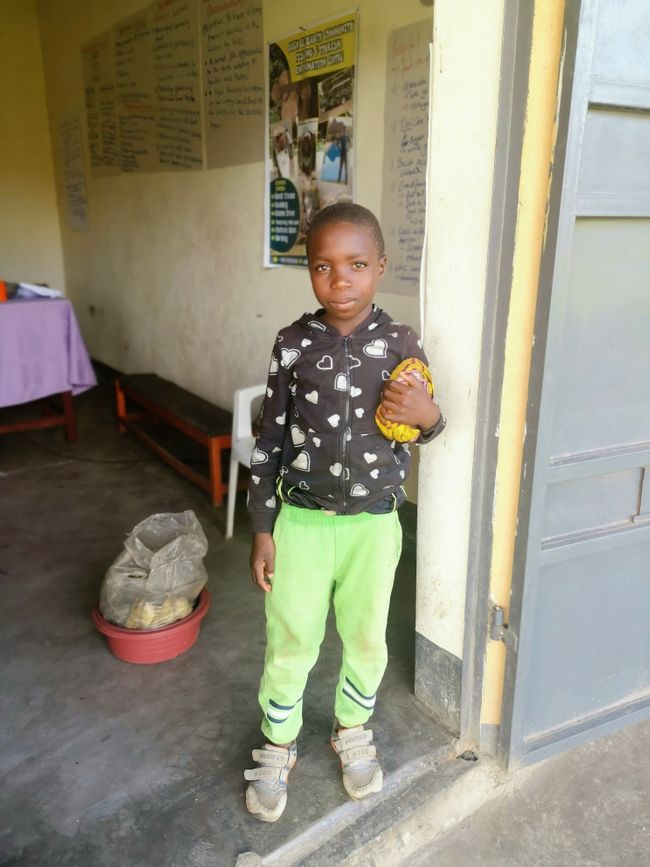
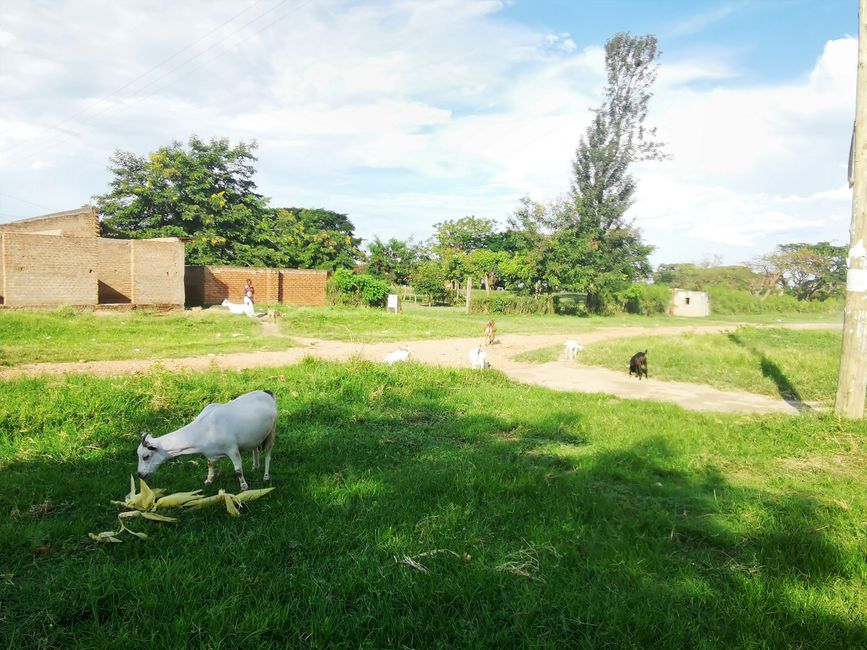
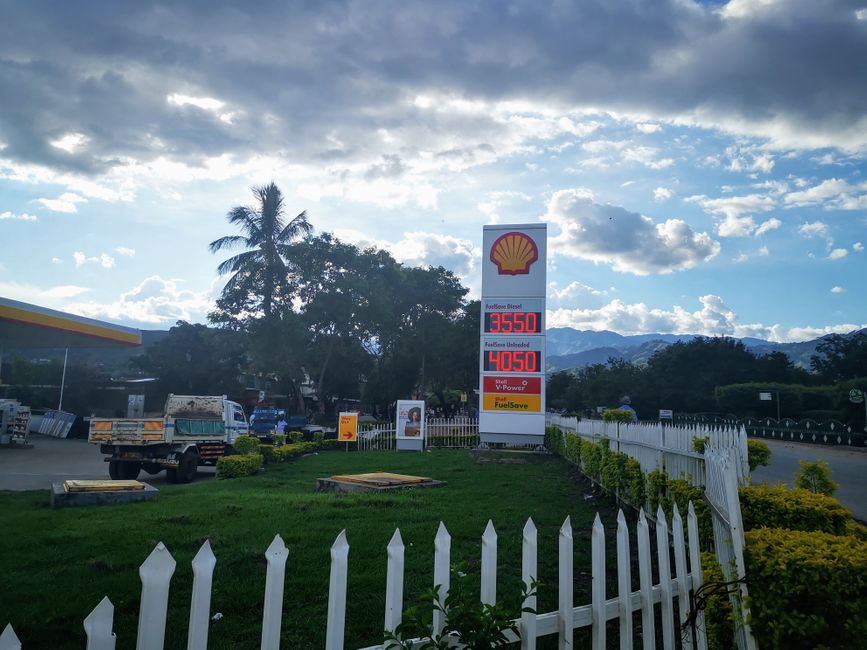
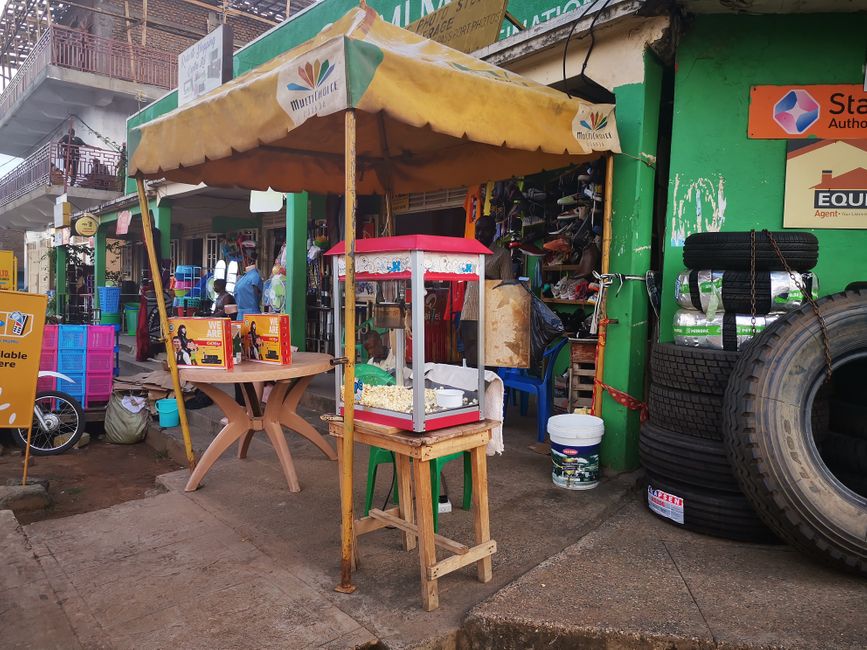
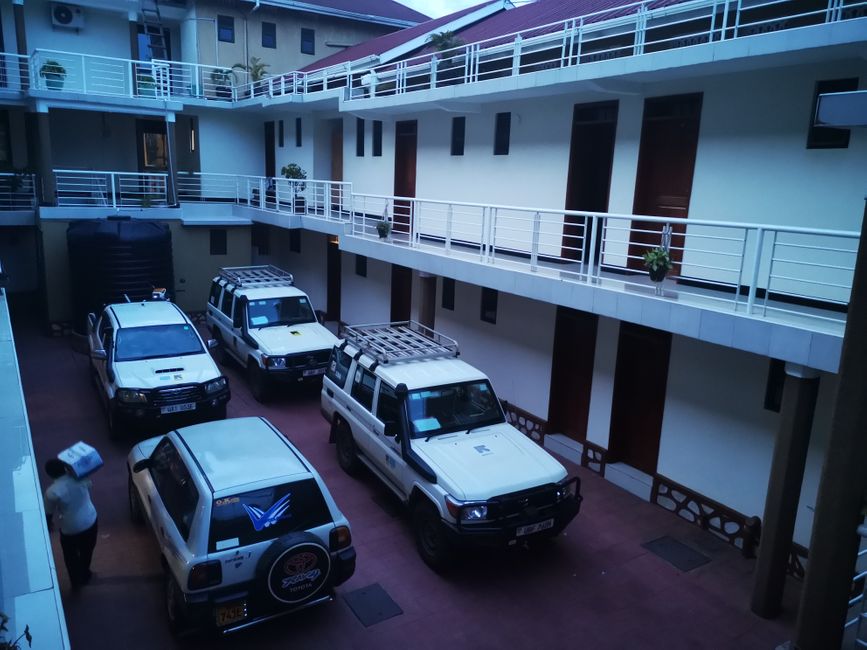
ނިއުސްލެޓަރ އަށް ސަބްސްކްރައިބް ކޮށްލައްވާ
On the way to the office, Bwambale and I stop at a branch of Absa Bank because Baluku said he had already withdrawn more than the maximum amount of 1 million UGX here. I explain my problem with the amount of cash I need to one of the bank employees and ask for solutions. He suggests that instead of using the ATM, we could try using the point of sale at the counter. Since I only need large amounts of cash towards the end of my stay, we agree that I will come back in time so we can check if I can get at least 3 million UGX (about 700 euros) at once.
As I leave the Absa Bank, I notice a sign for Western Union and I think I've heard that this bank specializes in low-cost international transfers, but I'm not sure. This would be a way for my family to transfer money to me that I can then collect here. I ask Bwambale and he confirms that he has already received a donation from a former volunteer this way. So, that sounds like a good plan.
You might be wondering why Bwambale didn't suggest this solution himself. I'm not sure. It has nothing to do with him personally. I have experienced this many times on my travels. The solution is actually known, but nobody thinks to communicate it. Sometimes it seems difficult to transfer a solution that has been used for a similar problem to a different situation. Since I know this, I can usually handle it well, even though I still wonder from time to time.
I tell Bwambale that Ezekiel was at my hotel last night to inform me that he will be away for his teaching assignment next week. He apologizes for not being available in the next few days because of that. He was selected by the government to conduct training in Swahili for other teachers. I appreciate that he came by specifically to tell me.
Now Bwambale tells me that Ezekiel hasn't been able to leave yet because he has a major problem with his poultry farming. 80 of his chickens have succumbed to a mysterious illness in a few days. The vet hasn't been able to determine the cause yet. It's news to me that he has a poultry farm in addition to his roles as a teacher, mobile preacher, supermarket operator, and director at RWECO-Vide.
After arriving at the office, I suggest that today we focus on how the organization can gain additional knowledge with minimal resources in areas relevant to the project, such as online marketing, tourism, statistical surveys, languages, etc. I also want to focus on brainstorming potential fundraising opportunities, networking with tourism stakeholders nationally and internationally, and increasing visibility through the use of social media.
Since I want to provide the URLs for further research on the internet and show what can be found with each provider, I rely on my smartphone because the office does not have WIFI. This can be a bit cumbersome - small screen, weak network - and takes accordingly long. I still haven't figured out why the network is so weak and fluctuating, as there is actually a large mobile phone mast in the middle of Kasese.
Even in the hotel, which has WIFI, I constantly have to switch between the hotel's WIFI, my German SIM card, and my Ugandan SIM card. After nothing worked over WIFI the other day, I had to set up a hotspot using my German SIM card. However, this is a very expensive affair given the amount of data I need for internet usage. A data pass of 15 euros is quickly consumed.
During our work, there are always pleasant interruptions. Bwambale shows me the lemongrass growing right in front of the office. The tea you can brew with three leaves and hot water tastes great, as I later find out.
Then I see one of the birds that also have their sleeping tree opposite my hotel, in front of the office. I ask Bwambale if it's a vulture. He's not sure and asks the young teacher who spends her days at her friend's neighboring hair salon. She says it's a marabou stork. I've never heard of it, and Google doesn't know this animal either. Then I try Marabou - bingo - it's a marabou stork. So, there are marabous sleeping in the tree across from my hotel room, not vultures. Together, we have solved the puzzle 😊
I ask the teacher if she is on vacation now, but she denies it. She is unemployed because of Corona. In Uganda, too, the schooling of children has been greatly restricted, and teachers who are not needed as a result are unemployed, "naturally" without pay or any other financial support.
I then show Bwambale pictures of our storks in Europe and tell him how loud they can clap their beaks. These marabou storks seem to be quieter representatives of their kind. Uganda is known for its diversity of birds among bird watchers all over the world - more than half of all African bird species can be found here.
We have lunch again at the White House, the garden restaurant around the corner. Bwambale eats elsewhere because he can't afford to eat at the garden restaurant every day. I tell him that in the future, I would also like to eat where he goes because I want to get to know the local cuisine. Today, I am bombarded with a network marketing event in the garden. The moderator speaks without pauses or breaks.
While I wait for my food, a young African man asks if he can sit with me. Of course, he can. He introduces himself as Gilbert and tells me that he has just come from a job interview with the restaurant manager and will soon start working here. I ask him what he studied. The answer is finance and accounting. He would actually work in a bank with this degree, but since there are hardly any jobs there, he has chosen this alternative.
When Bwambale picks me up at the restaurant, he meets his uncle Augustin, who is attending the network marketing event. He is wearing a pink Hello Kitty hat. Unfortunately, the photo I took doesn't show the Hello Kitty logo, but I find the pink color alone quite extraordinary. Can you imagine an adult man in Germany wearing such a hat??? I think it's cool. And my surprise shows how strongly I am influenced by the gender marketing prevalent in our country. Why shouldn't boys wear pink? Here in Uganda, it's common practice. I fell for it right at the first meeting with my new colleagues: Semerita, who is part of the management team, had her 6-month-old baby with her, wearing a pink hat. No, it's not a girl, it's a boy, as I found out when I asked.
In the afternoon, a few children stop by out of curiosity. They belong to the landlady of the office space who lives next door. I learn that the rental price is 100,000 UGX per month (about 23 euros). For that, you get an empty office space with painted concrete walls and bare concrete floors of about 15 square meters, including the use of the landlady's toilet. We are here on the outskirts of town (but only a 10-minute walk to the city center), in the center, you would pay twice as much for something comparable.
In the linked table, you can find an overview of the cost of living in Kasese. According to that, the average monthly net income is 250,000 UGX (just under 58 euros).
Shortly before closing time, a boy comes by selling cooked corn cobs. Great, that's my dinner. I don't need anything else today. I learn that his name is Kusmas, he is 12 years old, and he is in the Primary 3 class. As described in a previous blog post, many children do not attend school continuously but have to take breaks until they have saved enough money for the school fees. Without interruptions, Kusmas would already be in Primary 7.
The herd of goats grazing in front of the office is happy about the leftovers of our corn cobs.
On the way back to the hotel, I buy another mosquito plug for the power outlet in a supermarket. Until then, Bwambale didn't know that such a thing exists. But that's not surprising since he only has solar panels at home to generate electricity. Also, the item is quite expensive, almost 6 euros when converted. In comparison, I haven't even paid 4 euros for it in Germany. I suspect that the high import costs are responsible for this in Uganda.
In the courtyard of our hotel, several SUVs from the international humanitarian organization Rescue are parked, some of its employees are currently staying at the hotel.
ނިއުސްލެޓަރ އަށް ސަބްސްކްރައިބް ކޮށްލައްވާ
ޖަވާބު
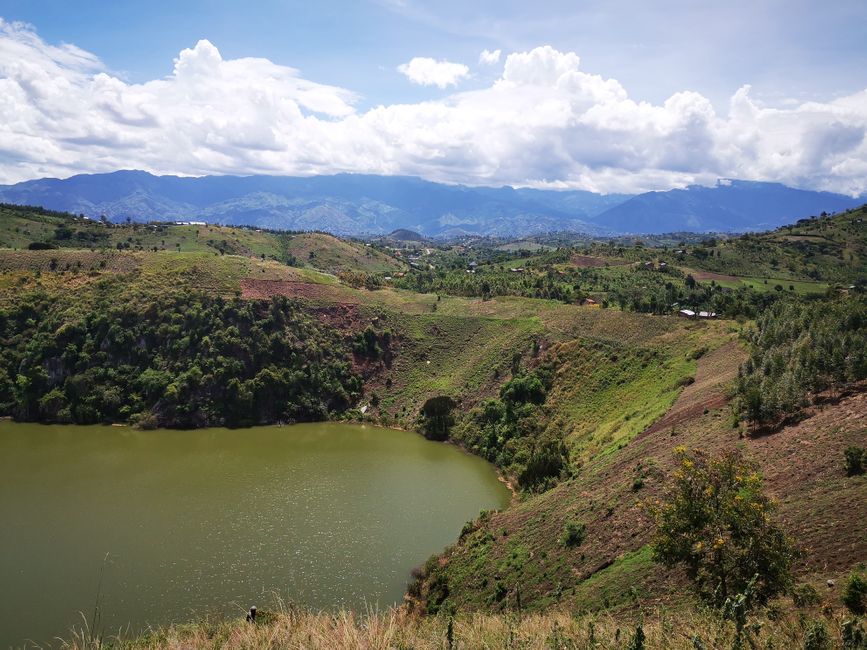
ދަތުރު ރިޕޯޓްތައް ޔޫގަންޑާ އެވެ

